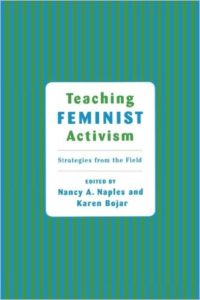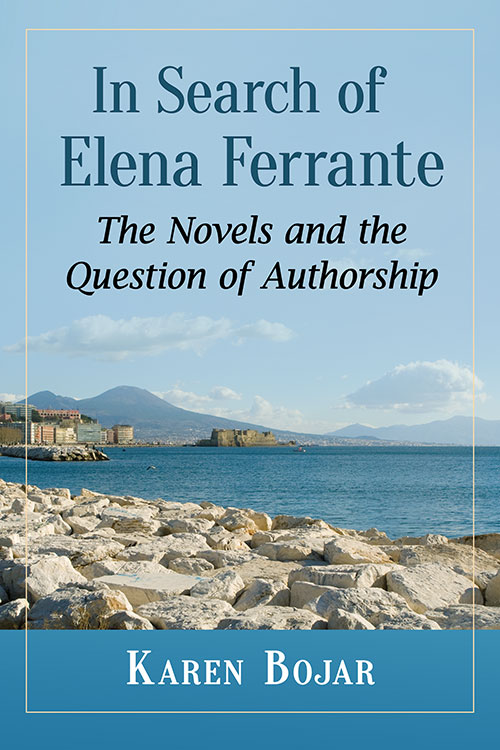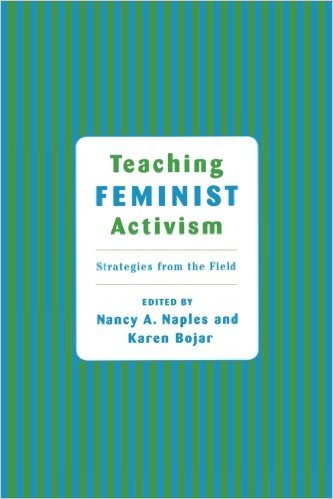 Teaching Feminist Activism by Nancy Naples and Karen Bojar is designed as a resource for feminist faculty interested in linking feminist theoretical perspectives on political activism with feminist pedagogy and experiential learning. This edited collection presents diverse theoretical approaches, methodological strategies, and practical teaching tools for Women’s Studies faculty in a variety of college and university settings. The editors include analytic pieces with some accompanying teaching materials that address the relationship between feminist research on activism and feminist classroom strategies for teaching feminist praxis in Women’s Studies. The collection includes descriptions of internship programs, relevant videos, and related teaching materials that have proven valuable in working with students to encourage their understanding of feminist political activism through experiential learning about political activism.
Teaching Feminist Activism by Nancy Naples and Karen Bojar is designed as a resource for feminist faculty interested in linking feminist theoretical perspectives on political activism with feminist pedagogy and experiential learning. This edited collection presents diverse theoretical approaches, methodological strategies, and practical teaching tools for Women’s Studies faculty in a variety of college and university settings. The editors include analytic pieces with some accompanying teaching materials that address the relationship between feminist research on activism and feminist classroom strategies for teaching feminist praxis in Women’s Studies. The collection includes descriptions of internship programs, relevant videos, and related teaching materials that have proven valuable in working with students to encourage their understanding of feminist political activism through experiential learning about political activism.
Contributors to the collection represent a wide range of disciplinary and interdisciplinary locations: ethnic studies, literary studies, sociology, social work, economic development, architecture, anthropology, political science and education as well as Women’s Studies. All can be described as activist faculty.
From Reviews of Teaching Feminist Activism: Strategies from the Field
“This book is an essential resource for helping Women’s Studies and other faculty conceptualize and carry out feminist and activist projects outside the classroom. Full of concrete examples and multiple resources, the provocative and thoughtful approaches detailed here will challenge and inform one’s thinking, teaching, and research.”
-Frances A. Maher, co-author of The Feminist Classroom
“A valuable collection of essays that will interest anyone engaged in teaching some version of feminism or activism, whether labeled as such or not. Reading across these different circumstances and efforts is both illuminating and inspiring.”
-Marjorie L. DeVault, author of Liberating Method: Feminism and Social Research
“This collection is sure to stimulate interest in trying to connect the classroom with the wider world of feminist organizing and action projects. The diversity of experiences on which faculty report is broad indeed, and the frankness with which they discuss the problems as well as the rewards is reassuring. There is something here for every teacher to find relevant and inspiring.”
-Myra Marx Ferree, author of Controversy and Coalition: The New Feminist Movement Across Four Decades of Change
TABLE OF CONTENTS for Teaching Feminist Activism




